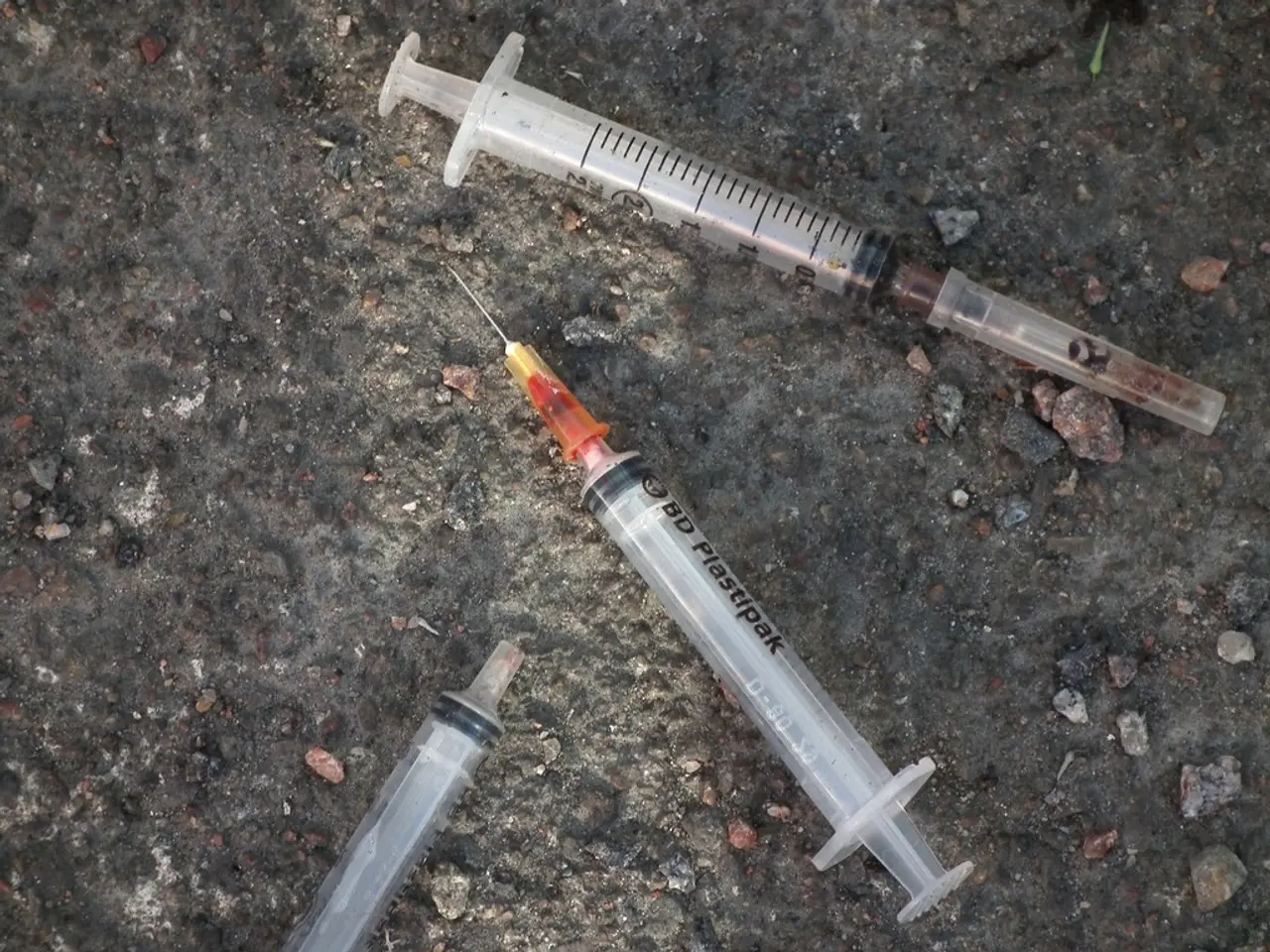diagnosing the novel coronavirus: a breakdown of COVID-19 tests
In the ongoing battle against the Coronavirus (COVID-19), understanding the various tests available is crucial. This article will shed light on molecular (PCR) tests, antigen tests, and antibody tests, providing you with the knowledge to make informed decisions about your health and safety.
COVID-19 tests serve two primary purposes: diagnosing active infections and understanding the spread of the virus and the population's immunity levels.
Molecular Tests (PCR Tests)
Molecular tests, specifically PCR tests, detect viral genetic material (RNA) by amplifying it, allowing detection even if only small amounts are present. PCR tests are the most accurate type of COVID-19 test, offering high sensitivity, especially early or late in infection.
These tests usually require sending a sample (often a nasal swab) to a lab, with results taking from hours up to a week. PCR tests are preferred for definitive diagnosis due to their high accuracy.
Antigen Tests (Rapid Tests)
Antigen tests, on the other hand, detect viral proteins (antigens) on the surface of the virus. Rapid antigen tests give quick results, often within 15-30 minutes, and can be used at home or in clinical settings. However, they are less sensitive than PCR tests and more prone to false negatives, especially in asymptomatic individuals.
Rapid antigen tests provide a fast, convenient solution for quick screening, particularly if you have symptoms or need a rapid answer.
There are also rapid molecular tests, a subtype of molecular tests, which combine the accuracy of PCR with quicker turnaround times, typically under an hour.
Purpose of Each Test for Individuals
- PCR tests are best when highly accurate results are needed, such as for confirming infection, testing after exposure, or before medical procedures.
- Rapid antigen tests are useful for quick screening, especially if symptomatic, or when you need immediate results.
- People with symptoms of COVID-19 should test immediately; if antigen tests are negative but symptoms persist, follow-up testing with PCR is recommended.
- Testing is also advised after close contact with a confirmed case, typically around 5 days post-exposure, to catch infection as viral load peaks.
Coverage and access vary, with Medicare covering PCR and antigen tests ordered by healthcare providers, but OTC at-home tests may have different coverage policies.
In summary, molecular/PCR tests offer the highest accuracy for detecting COVID-19 infection, while rapid antigen tests provide faster, more convenient results suitable for quick screening.
Staying informed and consulting healthcare professionals can help you make the best decisions for your health and safety during the pandemic. Urgent Care Centers typically provide both diagnostic and antibody testing. Early Detection of COVID-19 infections can lead to timely treatment and reduce the risk of severe illness.
Remember, antibody tests are not useful for diagnosing active infections, as antibodies typically develop 1-3 weeks after infection. Antibody tests detect antibodies produced by the immune system in response to the virus. At-Home Testing Kits are available from some companies.
For PCR tests, a healthcare professional will collect a sample from your nose or throat. Fever, cough, shortness of breath, fatigue, muscle aches, loss of taste or smell, sore throat, congestion or runny nose, nausea or vomiting, and diarrhea are common COVID-19 symptoms.
PCR test results can take anywhere from a few hours to a few days, while rapid tests provide results almost immediately. Diagnostic tests (PCR or antigen) are conducted in laboratories, while rapid antigen tests can provide results within minutes to hours.
COVID-19 testing is a crucial component in managing the spread of the Coronavirus (COVID-19). Rapid tests may involve a less invasive nasal swab. If you test positive, follow local health guidelines regarding isolation and notifying close contacts.
If you have symptoms or have been exposed to someone with COVID-19, a diagnostic test (PCR or antigen) is recommended. COVID-19 testing involves methods to detect the presence of the virus in individuals.
A positive antibody test does not guarantee immunity, and individuals should continue to follow public health guidelines. Many pharmacies offer COVID-19 testing. Local health departments often provide COVID-19 testing services, sometimes at no cost.
Antigen tests detect specific proteins from the virus and are generally faster than PCR tests. Public health officials rely on testing data to make informed decisions about lockdowns, travel restrictions, and vaccination campaigns. PCR tests are considered the gold standard for COVID-19 testing, detecting the virus's genetic material.
If you want to check for past infection, an antibody test may be appropriate. Get tested if you exhibit COVID-19 symptoms, have been in close contact with someone who has tested positive, plan to travel or attend a large gathering, are in a high-risk group, or have previously tested positive and are unsure of your current status.
Testing helps to identify asymptomatic carriers who may unknowingly spread the virus to others. The primary reasons for conducting COVID-19 tests are diagnosis and surveillance. During testing, you'll need to provide personal information for registration.
COVID-19 tests, including molecular (PCR) and antigen tests, play significant roles in understanding medical-conditions related to the virus and maintaining health-and-wellness. PCR tests, the most accurate type, detect viral RNA and are best for confirming infection or testing after exposure. Antigen tests, on the other hand, detect viral proteins and offer quicker results, making them useful for quick screening, especially in symptomatic individuals.




